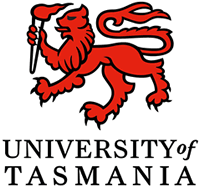About the research project - https://www.utas.edu.au/our-research/research-degrees/available-projects/health-and-medicine/area/menzies-institute-of-medical-research/redefining-the-role-of-myelin-in-neural-circuit-function
Myelination of axons in the central nervous system (CNS) is essential for the rapid transmission of action potentials and maintaining precise spatiotemporal activity patterns within neural networks. Though longstanding scientific dogma suggests that myelin internodes, once formed are static structures that remain in place as passive support for neurons. Our team recently challenged this view by demonstrating that existing myelin internodes can subtly adapt their shape during spatial learning. This structural remodeling increased action potential conduction speed along axons of hippocampal neurons and improved spatial learning outcomes. This discovery represents a paradigm shift in our understanding of myelin function in the brain, but also leaves us with many unanswered questions, such as: what are the underlying mechanisms driving this structural remodeling and is this a widespread form plasticity that supports healthy brain function?
This project aims to determine whether myelin remodeling occurs within specific neural circuits engaged during different types of learning throughout life. Additionally, by characterizing the expression and localization of ion channels and anchoring proteins within the axon:glial domains of myelinated axons, this project aims to understand the molecular changes that underpin myelin remodeling. This project will involve the handling and behavioural training of transgenic mice, optogenetic stimulation of live mice, and stochastic reconstruction (STORM) and transmission electron (TEM) microscopy.
**Multiple students can undertake difference aspects of this project, and the co-supervisory team can be adapted and finalised following a discussion with Dr Carlie Cullen.
Funding
Applicants will be considered for a Research Training Program (RTP) scholarship or Tasmania Graduate Research Scholarship (TGRS) which, if successful, provides:
- a living allowance stipend of $28,597 per annum (2021 rate, indexed annually) for 3.5 years
- a relocation allowance of up to $2,000
- a tuition fees offset covering the cost of tuition fees for up to four years (domestic applicants only)
If successful, international applicants will receive a University of Tasmania Fees Offset for up to four years.
As part of the application process you may indicate if you do not wish to be considered for scholarship funding.
Eligibility
The project is open to domestic (Australian and New Zealand) and international applicants.
Applicants should review the Higher Degree by Research minimum entry requirements.
Selection Criteria
The project is competitively assessed and awarded. Selection is based on academic merit and suitability to the project as determined by the College.
Additional essential selection criteria specific to this project:
- Bachelor of Science (Hons) degree – or equivalent
Additional desirable selection criteria specific to this project:
- A background in neuroscience would be advantageous
- Experience working in a laboratory
Application process
After checking and ensuring that you meet the eligibility and selection criteria contact the project supervisor.

 Continue with Facebook
Continue with Facebook



